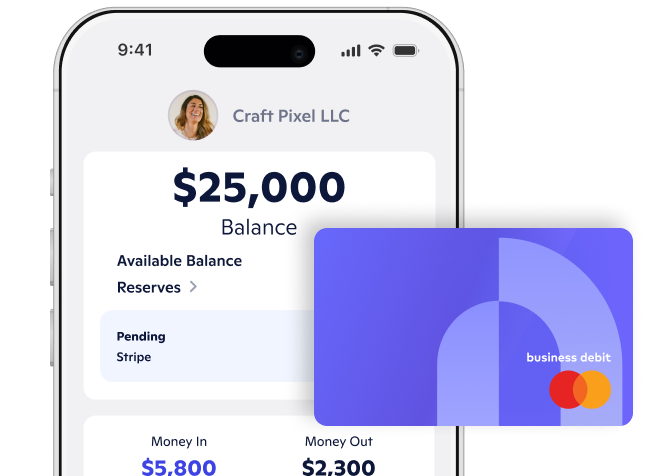
"To become a world-class success like Oprah Winfrey, Bill Gates, or Warren Buffet requires a unique combination of skill, talent, and blind luck. Nothing can guarantee your business will reach those heights. Success in small business isn’t solely a matter of skill, talent, or luck, although it does require certain amounts of all those things. Success in small business is a matter of habits, and it helps to pay attention to the habits of successful business owners.
There is a formula to becoming successful enough to feed your family and take care of a growing cohort of great employees. It doesn’t guarantee success, but it puts the odds substantially in your favor.
10 Habits of Successful Business Ownership
The better you develop these everyday habits of successful leaders, the better your business will thrive:
1. Plan Your Day
If you don’t map out your daily schedule or identify the key things you must complete before the end of the day, it becomes easier to fall victim to distractions. This is true for everybody but even more critical for a business leader.
If you plan your day, you start it with control and purpose. If you don’t, you’re volunteering to give that control and purpose to somebody else.
Level This Up
If you’re already doing essential planning, take this to the next level by creating time blocks for your day. Divide your work time into hour-long sprints, devoting one to communications, one to a critical task, one to administrative duties, and so forth.
Grouping like tasks together helps your productivity. It also gives you a hard stop time for activities that tend to spread, like answering emails or taking a meeting with that one brilliant but chatty team member.
2. Get Busy Early
Many people put some kind of moral judgment on whether you stay up late or get up early. That’s nonsense, of course, but there are strong reasons to become an early riser when you run a business.
If you’re in the office before everybody else, you can accomplish a handful of crucial tasks before the chaos and demands of your team and a regular workday can hijack your time. Likewise, that morning time is less stressful, allowing you a less demanding start to your day.
By contrast, working after-hours means you’re doing that work fatigued from the demands of the regular day — and that’s if your day hasn’t been derailed by some emergency, leaving you with no after-hours time.
Level This Up
Create a morning ritual for the first 10 to 30 minutes of your day. Fill it with energizing, focus-friendly activities like a light workout, gratitude meditation, stretching, or listening to inspiring music. With that as the reliable beginning of your day, the next 16 hours will go by much more smoothly.
3. Eat the Frog
This particular idiom means doing the hardest thing first. When you have one challenging or unpleasant task on your plate and several smaller, easier ones, the temptation is to warm up with the easy stuff.
The problem is the easy stuff can quickly spread out until you run out of time for eating that frog. Worse, when you finally do tackle the challenging task, you’ll be fatigued from the other effort.
Instead, just eat that frog first thing. Set it as your primary task of the day — bonus points for combining it with getting busy early.
Level This Up
Apply the “eat the frog” mindset to all of your tasks, from unpleasant household chores to getting your workout in to having that talk you’re dreading with your child.
4. Focus on Profit
We’re not talking here about the profitability of your company. We’re talking about the profitability of your time.
Have you ever thought about the return on investment (ROI) of the minutes and hours you spend in a day? Which tasks provide rich returns for your company’s health, and which ones take your time with little benefit? Have you considered what percentage of your day you spend doing things that you find enriching or enjoyable, as opposed to unfulfilling or unpleasant?
Take a week to track all the things you do across any given day, then think about how much personal “profit” you derive from each of those activities. Chances are, you’ll find a few you can cross off your to-do list without hurting anything.
Level This Up
Perform this audit not only for your time but for your company as a whole. Are there clients, products, or projects you stay involved in that take more than they give? Permit yourself to jettison them.
5. Exercise
Richard Branson once said exercise would double your daily productivity. He doesn’t back that claim up with any studies or research other than his personal experience, but even if his numbers don’t quite add up, the idea is sound.
Exercise can improve energy, focus, mood, and general health, all of which contribute to your daily productivity both in the short and long terms. It’s also your best defense against serious health issues that can derail or be fatal to both your life and your business.
Just 20 to 30 minutes of moderate exercise each day is enough to gain noticeable benefits. What kind of exercise is less important. Just make it something you enjoy enough to keep doing it.
Level This Up
If you only do one thing in the morning before your regular day begins, make it your exercise routine. If you schedule it at any other time of the day, various emergencies, time overages, and other demands will tempt you to skip it. If you work out in the morning, you’re done before anything can get in the way.
6. Stay in Tune and in Touch
When you spend the whole day working on the nuts and bolts of your business, it’s easy to get out of sync with your customers. You lose sight of what they need, what they want, and the reasons you signed on to give it to them. This is arguably one of the most important habits of successful business owners.
Take time every week to check your customer data, read industry trends, talk with your clients and leads, and generally stay abreast of what’s going on with your customers and the industry as a whole. This helps you hone your content marketing and manage your business better, and it can reignite your passion for what you do.
Level This Up
Bake this into your content funnel or customer journey, especially after the sale is made. A quick ping from the person in charge can quickly turn a happy customer into a loyal brand advocate for life.
7. Delegate
Yes, you already know you have to delegate, but you still do too many tasks yourself. Legendary business organization specialist Michael Gerber warns us to spend more time working on our business instead of in our industry, and delegation is the key to making that happen.
Even if you’re pretty good at delegation, most business owners have two places they could delegate more. The first are tasks you don’t enjoy but don’t trust other people to do right. Fix this by finding somebody you can trust, then charging them with it.
Secondly, delegate the tasks you don’t want to complete yourself but have never trained anyone to complete. Block out time next month dedicated to teaching your replacement. This investment of time will pay off faster than you can imagine.
Level This Up
Divide your salary by the number of hours you work to find out what you’re getting paid per hour. Hire somebody to do everything you spend your time on that doesn’t cost more than that.
8. Practice C.A.N.I.
This acronym from the self-improvement circuit stands for Constant And Neverending Improvement. As a business owner, you owe it to yourself to practice this mindset.
Learn something every day by reading more and listening to podcasts. Use YouTube tutorials to pick up a new skill. Identify your weaknesses, then work to eradicate them ruthlessly.
Level This Up
Lead by example, and provide opportunities for your team to follow that lead. Offer continuing education help, time off for training, and access to mentorships so that everybody in your company is dedicated to C.A.N.I.
9. Take Breaks
You’re likely already forming an objection to this in your mind: If you had time to take breaks, you would already be taking them.
But the truth is even a hard-charging business owner like yourself begins to fatigue after too many consecutive minutes or hours of effort. What might have taken 10 minutes at the beginning of the day takes 15 by noon and might take half an hour in that lull after lunch.
Taking a five-minute break to walk up and down a flight of stairs or power nap resets that fatigue clock so you’re faster and more productive in the minutes you’re not on break. Do the math, and you’ll see it’s not that you don’t have time for a break; you don’t have time not to take one.
Level This Up
A five-minute meditation session carries health and wellness benefits far beyond just your workday productivity and fits well within the structure of even busy days. You can do it anywhere and learn the basics on YouTube in less than 15 minutes.
10. Set a Stop Time
There’s a myth of the heroic business owner toiling through 18-hour days to make their business run through sheer effort. Ignore that myth. Business owners who do that end up burning out or developing health or relationship problems that hurt the company.
It’s better to set regular work hours, after which you focus on yourself, your family, and your interests outside of your business. Some days will demand you stay late, but avoid making that a habit. Instead, set a stop time to your day, then enjoy life.
Level This Up
While you’re setting times, block quality time with your loved ones -- and with yourself -- right into your schedule. Prioritize them the way you prioritize your work tasks for a better work-life balance.
Final Thought: Building Habits
Don’t set yourself up for failure by taking on all 10 of these habits tomorrow. You’ll burn out and wind up in a less helpful and successful place than before you read this article. Successful business owners know how to pace themselves and prioritize the broad list of projects possible in their lives.
Instead, focus on building one habit at a time. Go deep on that one thing until it’s second nature, then move on to the next. Don't reinvent the wheel either. Mimic the habits of successful business owners and adapt them to fit your life and business. That’s how you create massive change for yourself, your family, your employees, and your brand.
%201.png)
.png)




